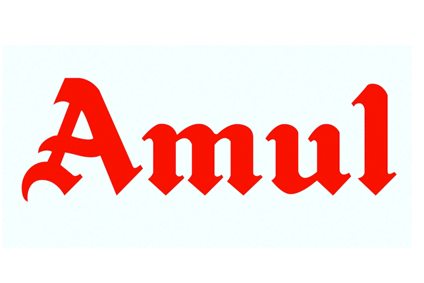
Indian dairy giant Amul is gearing up for growth. The company is preparing a push into the value-added nutraceuticals sector in India while, further afield, the co-operative intends to expand in the US and start manufacturing in Europe and Singapore by early 2016. Newly-appointed managing director Dr K Rathnam speaks to just-food about Amul’s future.
just-food: Upon your appointment as managing director, Amul said your focus is going to be “new technology, establishing start-ups abroad and new products”. Could you elaborate what action will be taken?
Dr K Rathnam: Where new technology is concerned, I am planning to recover excess proteins from skimmed milk. Fractionation of proteins for higher bio-availability formulations, technological development for lactoferrin isolation and introducing the latest technologic processes in cheese processing are just a few [projects] to name.
When it comes to new products, we are working on developing nutraceutical products – low-cost nutritional products for malnourished children, value added products. We are also hoping to expand the bakery products line.

Discover B2B Marketing That Performs
Combine business intelligence and editorial excellence to reach engaged professionals across 36 leading media platforms.
Establishing start-ups abroad is another area I am looking at. We have already established a contract manufacturing unit in the USA for the manufacturing and marketing of Amul products in USA and other countries. A similar kind of mechanism would be set up in Europe, Singapore.
just-food: Amul announced plans to sell milk in the US last January. What progress has been made?
Dr Rathnam: We are ready with the products, as well as a plant to manufacture various Amul products and we are just waiting for the approval of the Gujarat government to start a branch office in the USA. This approval is required if we have to manufacture or establish a start up outside Gujarat since we are a co-operative.
just-food: Are you growing your manufacturing base in India as well as overseas?
Dr Rathnam: Currently Amul has six manufacturing units, including [one at its headquarters in] Anand, and three contract manufacturing units in West Bengal. We plan to establish our own manufacturing unit in Kolkata, one in Punjab and two more co-packing units in Jharkhand and Bihar states.
Our expansion plan outside Gujarat, both in Maharashtra and West Bengal, is undergoing drastic change with an enormous thrust to increase the procurement of milk at least by 50%…in both the regions. We also plan to establish milk procurement activities in Punjab and have targeted at least half a million liters collection daily from the beginning of 2017.
just-food: On the technology front, Amul launched India’s first dairy plant with robotic milk packing technology in Virar, near Mumbai. Are you hoping to expand this to other plants?
Dr Rathnam: Yes, we are hoping to further improve this technology and implement it in all of our upcoming projects.
just-food: Amul also has said it wants to increase per capita productivity of milk animals. Could you elaborate on this?
Dr Rathnam: Milk production per animal is very poor in India as compared to other developed countries. We get about 4,000 litres per cow during one lactation cycle as compared to 8,000-12,000 litres of milk production per cow in developed countries. So we aim at improving the yield of an animal to at least 6,000-7,000 liters per lactation cycle through proper breeding methods.
just-food: What sort of work is being done by the Amul Research and Development Association to improve cattle breeds and improving milk production?
Dr Rathnam: They are working on increasing fertility. They are also vigorously monitoring artificial insemination activities, while reducing the inter-calving period.
just-food: How do you see the future of Amul under the new government? What reforms would you like to see?
Dr Rathnam: We anticipate all round development. We would like to see better infrastructural facilities including roads, power and cold storage facilities. We also want the government to ensure strict implementation of a national level breeding policy for the overall enhancement of yield at a sustainable level.
just-food: How should the India dairy sector improve its cold chain distribution – what would be the best and most practical steps to take?
Dr Rathnam: That can only happen when there is continuous power availability [and] proper road development in interior parts of the country for easy transportation of milk from villages.
just-food: How does Amul plan to boost its branding and marketing to middle class consumers?
Dr Rathnam: Amul products are intended to meet the common man’s need on a daily basis. And Amul sells about 10m litres milk for daily consumption, which means at least 10m families buy Amul milk daily. This in itself is great advertisement.
just-food: Will value-added dairy products become a more important part of Amul’s revenue in the future, compared to milk?
Dr Rathnam: It would always be an equal percentage, 50-50 I would say.
just-food: How does Amul differentiate itself from competitors in the branded retail marketplace?
Dr Rathnam: We maintain consistent quality and always ensure availability of our products in the market.

US Tariffs are shifting - will you react or anticipate?
Don’t let policy changes catch you off guard. Stay proactive with real-time data and expert analysis.
By GlobalData




